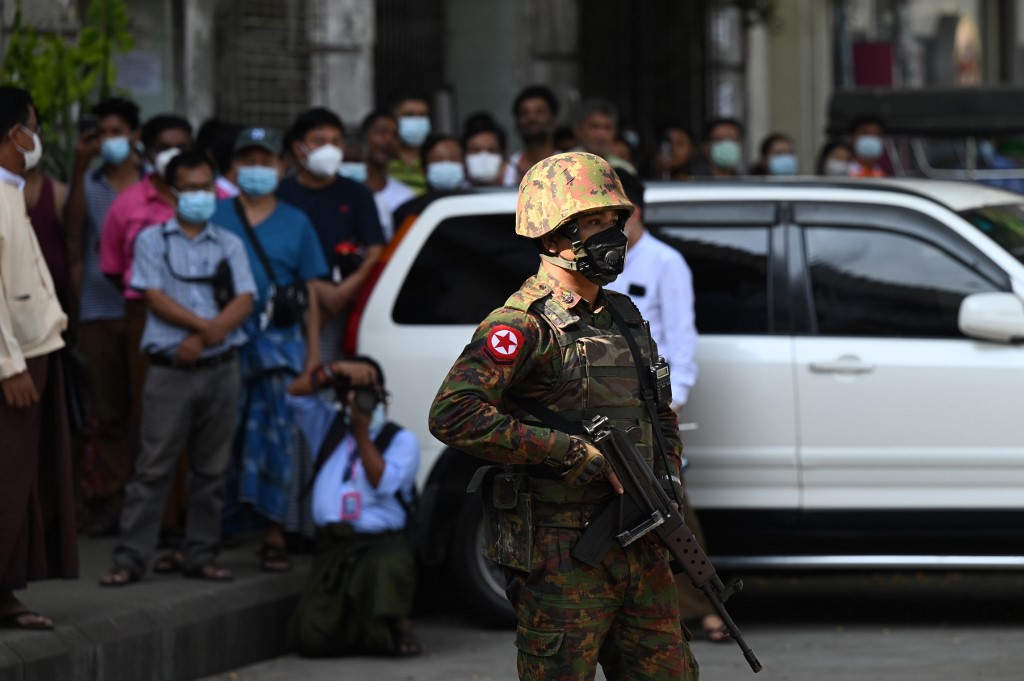
Myanmar's ethnic armed groups condemned the military Tuesday for ousting Aung San Suu Kyi's government and signalled a halt to the country's long-running peace process, citing a lack of trust in the army.
Myriad armed rebel groups control an estimated one-third of Myanmar's territory, some fighting for decades against the state for more autonomy.
When the military seized power on Monday following a coup, the army announced a ceasefire with the ethnic armed groups to extend until the end of February.
The army said it would continue to discuss the peace process with some insurgent groups in the border regions, the details of which Suu Kyi's government had spent years negotiating.
But the military's overture for talks was met with scepticism by some rebel groups.
"How can we discuss with them when they staged a coup? This is not the norms of democracy," said Major Kharm Sarm, a spokesperson for the Restoration Council of Shan State (RCSS) in Myanmar's north.
He said it would be impossible to hold a political dialogue without a democratically elected government.
"Among the political parties and the ethnic armed groups, we have lost trust in them."
The Karen National Union (KNU), an ethnic armed organisation in the southwestern Karen state, said Tuesday in a statement it was "worried and concerned for Myanmar's future".
The army's actions "show no seriousness over solving the political crisis", it said.
"It will badly harm the future of the country, which already has many challenges," said the KNU, urging a peaceful solution and calling for Suu Kyi's release.
The army seized power after weeks of alleging voter fraud in Myanmar's November elections, which Suu Kyi's National League for Democracy party swept.
After detaining her, the military installed a 12-month state of emergency, and the country's "legislative, judicial and executive powers" were granted to army chief General Min Aung Hlaing.
Myanmar's return to military rule means that the peace process, already viewed with suspicion by some groups, "is all but dead", said Francis Wade, an author and expert on ethnic conflict in the Buddhist-majority nation.
"In those border regions, the consequences of Monday's actions may well be calamitous... Whatever channels might have tentatively opened during the recent experiment with democratisation will now close," he told AFP.

